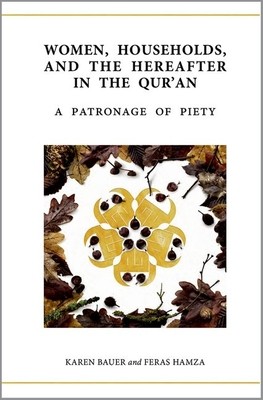
- We will send in 10–14 business days.
- Author: Karen Bauer
- Publisher: Oxford University Press, USA
- ISBN-10: 0198897278
- ISBN-13: 9780198897279
- Format: 13.2 x 20.8 x 3.8 cm, hardcover
- Language: English
- SAVE -10% with code: EXTRA
Reviews
Description
It is commonly understood that the Qur'an sought to transform social and religious practices in its seventh-century Arabian milieu. Yet the nature of that transformation is debated, especially as it relates to women, warfare, kinship and community. This book offers the first historical-critical study of women, households and patronage in the Qur'an, and thus of the way that Qur'anic law and theology refashioned existing late antique social structures. It shows how the Qur'an sought to transform households and patronage not by undermining them, but by providing them with a salvific frame in which everyone, regardless of gender or social status, has moral agency and can achieve redemption and salvation. These findings call into question common approaches to militancy in the text, to the nature of the early community, and to women's place in that community. Personal piety, undertaken by women and men alike through practices such as propriety, modesty, prayer, almsgiving and commanding decency, is an expression of communal identity. Such quotidian piety is egalitarian, but it is enacted within social hierarchies: the believing community was structured in households with a pater familias and various dependants, often including women, children, orphans and slaves. These households are treated as a major arena for ethical action and for patronage that offers moral and physical protection to the vulnerable. Piety comes to form the basis for all patronage since God Himself is the ultimate patron. This study proposes new paradigms for understanding the Qur'an's social milieu and its salvific vision for that world.
EXTRA 10 % discount with code: EXTRA
The promotion ends in 17d.14:00:52
The discount code is valid when purchasing from 10 €. Discounts do not stack.
- Author: Karen Bauer
- Publisher: Oxford University Press, USA
- ISBN-10: 0198897278
- ISBN-13: 9780198897279
- Format: 13.2 x 20.8 x 3.8 cm, hardcover
- Language: English English
It is commonly understood that the Qur'an sought to transform social and religious practices in its seventh-century Arabian milieu. Yet the nature of that transformation is debated, especially as it relates to women, warfare, kinship and community. This book offers the first historical-critical study of women, households and patronage in the Qur'an, and thus of the way that Qur'anic law and theology refashioned existing late antique social structures. It shows how the Qur'an sought to transform households and patronage not by undermining them, but by providing them with a salvific frame in which everyone, regardless of gender or social status, has moral agency and can achieve redemption and salvation. These findings call into question common approaches to militancy in the text, to the nature of the early community, and to women's place in that community. Personal piety, undertaken by women and men alike through practices such as propriety, modesty, prayer, almsgiving and commanding decency, is an expression of communal identity. Such quotidian piety is egalitarian, but it is enacted within social hierarchies: the believing community was structured in households with a pater familias and various dependants, often including women, children, orphans and slaves. These households are treated as a major arena for ethical action and for patronage that offers moral and physical protection to the vulnerable. Piety comes to form the basis for all patronage since God Himself is the ultimate patron. This study proposes new paradigms for understanding the Qur'an's social milieu and its salvific vision for that world.


Reviews